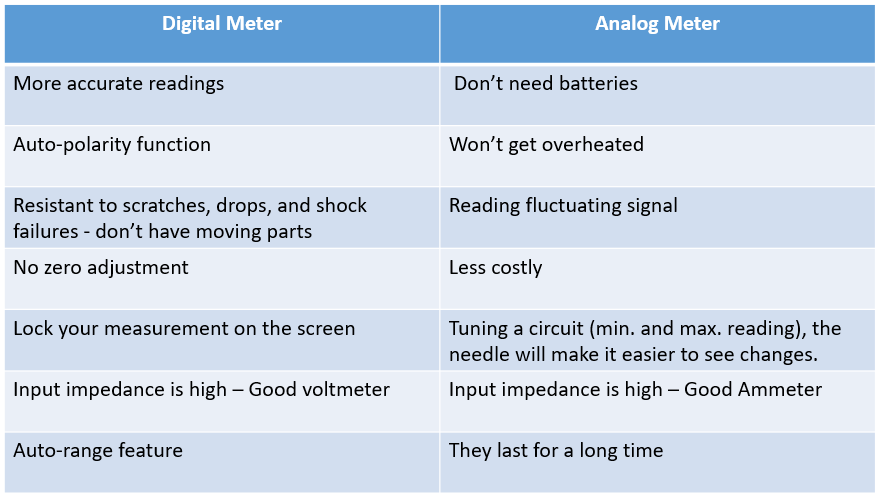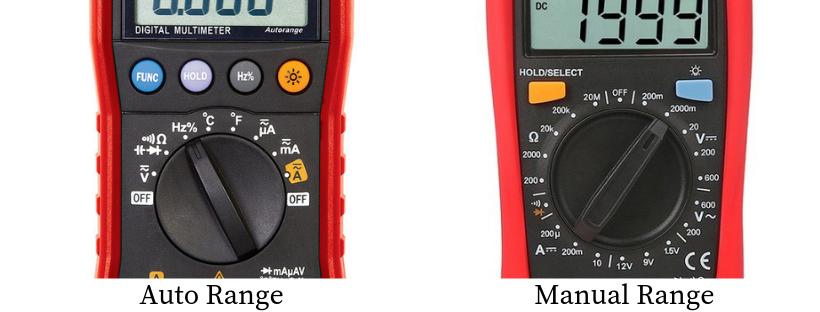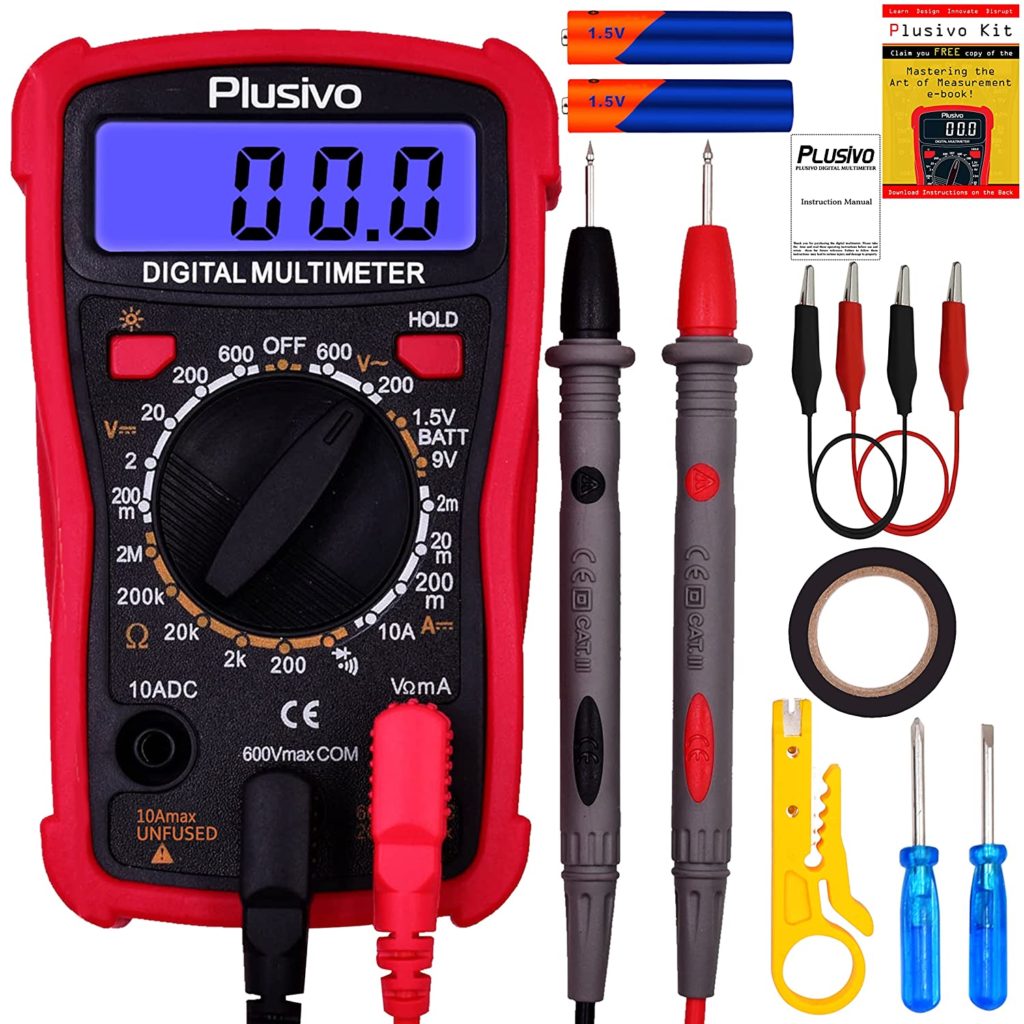3 Best Digital Multimeters for Electronics (2024)
Some of the key features of the best digital multimeter for electronics are, that it must have resistance, capacitance, voltages, and current measurement functions. It should be reliable and accurate, and finally must fall in a decent price tag of around 30 – 60 USD.
You know, a multimeter is a fundamental tool for electronics students, hobbyists, or professionals. You get this tool wrong, and this will affect all your work.
If you are a beginner you probably don’t have enough knowledge of what to consider when choosing the best digital multimeter for yourself. You may not know about the best multimeter brands, technical parameters, and perhaps a lot of other questions as well.
Hi, I am Abbas. If the above lines have got some of your attention. I am sure the rest of the article will be as helpful as above.
Because in the rest of the article, I will talk in detail about what parameters to look for. Also, I will share a list of some amazing digital multimeters for you to have a look at, and much more.
Hay man! I am not perfect, nor this article is going to be. This is just my limited knowledge try to help you somehow.
I hope you will enjoy it.
Best Digital Multimeters for Electronics
I think before getting into the list of digital multimeters there are a few basic things that a beginner must understand before making any buying decision. If you are not a complete beginner you can of course skip these sections.
The first question is, why digital multimeter?
Why digital multimeter?
The answer is, that it is not that analog multimeters are bad or not good enough. The fact is digital multimeters are very user friendly. You don’t need to develop a skill in how to read an analog multimeter screen.

Now the display is not the only game-changer, let’s see what else this digital multimeter guy got for us. (These are bad features for analog meter)
- More accurate results because we don’t need to read the analog display
- Auto polarity detection – which means if you connect the probes reversely you can have accurate readings. But using the analog meter if you accidentally reverse the polarity you damaged the meter. So, be careful there
- If you drop this guy (assuming not from 5 story building) this guy will work accurately.
- Today’s modern meter comes with automatic range detection. All you have to do is just plug the probes, and you get the results.
- Have additional useful features such as holding the results, measuring the peak voltage, and bright display light to work at night, or in dark sight.
It seems like if an electronics beginner decides to pick a meter, it should be the digital multimeter one unless he is sure what he is doing.
The second question is what about the range selection?
Auto Vs Manual Range
You got the idea of analog and digital meters. Now digital meters are sub-divided into two categories:
- Auto range
- Manual rage
They both do the same job. The difference is manual range meter is the old technology model while the auto range is the current state of the art technology.
The difference lies in the range selection.
Auto range selects the range automatically while in the manual one we have to select the range ourselves and try some different ranges to finally get accurate results.

You can clearly see the difference. Auto range multimeters are more powerful than manual range ones. For example, in the auto range, if we want to measure resistance. We just have to select the Ohm sign using the function selector round button – it is that simple.
While in a manual range we get the different values of Ohms, and we have to manually select the range which we consider a good suit for our measurements.
In summary, for an electronics person, it is good if he chooses the digital multimeter with auto range feature.
Technical Parameters
Now this section may be a little technical and may require some electronics knowledge. But I will try to explain everything in simple words.
Keep in mind, that if you don’t understand everything fully. Don’t worry. As I have considered all these technical details in the list (coming in the rest of this article) of all the best digital multimeters for electronics work.
The following are the technical parameters when selecting any type of multimeter. I learned with time. You should consider them when going for your digital multimeter.
a. Input resistance or impedance: The higher the input resistance, the better your digital multimeter is. Typically, 1MOhm is considered a fair value.
b. Safety features (CAT safety measures): These ratings ensure your multimeter will not blow in your hands, and you will be safe if you accidentally short the mains.
c. Range limits: your multimeter ranges should cover your present and future project demands.
d. Accuracy: A 0.5% DC volt accuracy with 4000 or 6000 counts is fine. Greater than this value makes your meter not professional and a waste of money.
e. Continuity response time: The quicker the response time, the better your multimeter. It is very handy when you are analyzing your circuit for short or open situations.
This was just a quick summary of parameters to consider when buying any digital multimeter.
Now you might find the following very useful if you want to know in detail about multimeter buying
List of some best digital multimeters for electronics
I think a lot of you may have got bored with all the above information. I shared them because I want you to have all the information before you make any buying decision. I am just trying to put your money in the right place and the right multimeter.
Let’s get into the list of some best digital multimeters that you can have if you are an electronics student, hobbyist, or even a professional.
1. Klein Tools MM325
The first digital multimeter I have for you is the MM325 from the famous brand, Klein Tools.
Now, you are going to love this multimeter for its safety i.e., its CAT III for 600V. It has an auto power-off option which makes it really handy when you are working on simultaneous projects in your lab.

Important features of this best beginner multimeter
- Resistance measurements
- Voltages (Both AC and DC)
- AC and DC current measurements are available
- Diode and continuity testing
- CE certified
- Data hold button
- Capacitance measurements
- Battery testing for 1.5V, 3V, and 9V.
If this multimeter has got your attention and wants to know more about it. Here is the link, Klein Tools MM325 (Amazon link) for your own further investigation.
2. AstroAI WH5000A
Another best electronics digital multimeter is the WH5000A. Its name is strange and not very catchy, but the multimeter is a real deal.
You can’t limit this model WH5000A to just beginners, it can be used by anyone in electronics. This could be your lab device for so many years to come.

Important features of this multimeter
- It is auto-range with 6000 counts, to save you time and give you extra accuracy
- Capable of measuring micro and milli range currents both AC and DC
- Has CAT II, III safety
- High-quality internal fuse
- Temperature measurement – which is useful to check for components for overheating
- Backlit LCD and hold function, a huge deal
- Multifunction socket, for transistor and capacitor measurements
- It has a hanging magnet, O God this is just huge for me
You know, you cannot really predict the requirements of any electronics project. One project will need a multimeter to just measure some resistor values and voltage drops, the other may require other measurements, and the list goes on.
So, you require a complete package, and the AstroAI WH5000A (Amazon link) has got everything for you. It is not pricey, and you will enjoy it working with it. In my opinion, it’s worth a try.
3. Plusivo Digital Multimeter
Another best electronics multimeter is from the Plusivo brand. This brand manufactures a lot of amazing electronics testing tools for students, engineers, hobbyists, and as well as for professionals.

This multimeter comes with a bunch of extra things, i.e., screwdrivers, alligator clips, and a book to teach you how to do certain measurements.
You can use it for a variety of measurements. Following are some key features of this small-size multimeter.
- Measure resistance with all standard ranges
- Measure voltages (AC & DC both)
- Measure DC current up to 10A
- The quality of probes is amazing
- Has the hold button, which is very handy in a lot of situations.
- Diode testing
- Circuit continuity checker with loud buzzer.
In a short summary, this little device is very handy. It has a battery function to test battery quality: it displays the current (in mA) that the battery can provide when connected to a resistive load of 40 Ohms (1.5V) or 400 Ohms (9V).
If you like this multimeter. Then you can follow this link, Plusivo Digital Multimeter (Amazon link), to find more about it yourself.
Conclusion
You know, a multimeter is a very fundamental tool when it comes to electronics. In electronics, we measure resistance, capacitance, and voltages all the time. It is not effectively possible without having the best digital multimeter for electronics.
In this article, we look at some selection criteria that help us select the best multimeter, especially for electronics related jobs. We concluded that a multimeter must have quality probes, high input impedance, standard range limits, and much more.
Then I try to give a list of electronic digital multimeters for your research and inspection.
That’s set. That is all I have to share about this topic. I hope it was helpful.
Thank you and have a grateful life.
Other useful posts:
- 14 best beginner multimeters [Easy Buying Guide]
- The #9 best budget analog multimeters (Choose yours)
- #9 Best Quality Multimeter Extension Leads
- #7 Best Cheap Multimeters (For Electronics & Cars)
- What type of multimeter should I buy (Answer)
- Digital Multimeter Basics (easy #4 step by step guide)
- Multimeter Buying Guide (Important things to consider)
